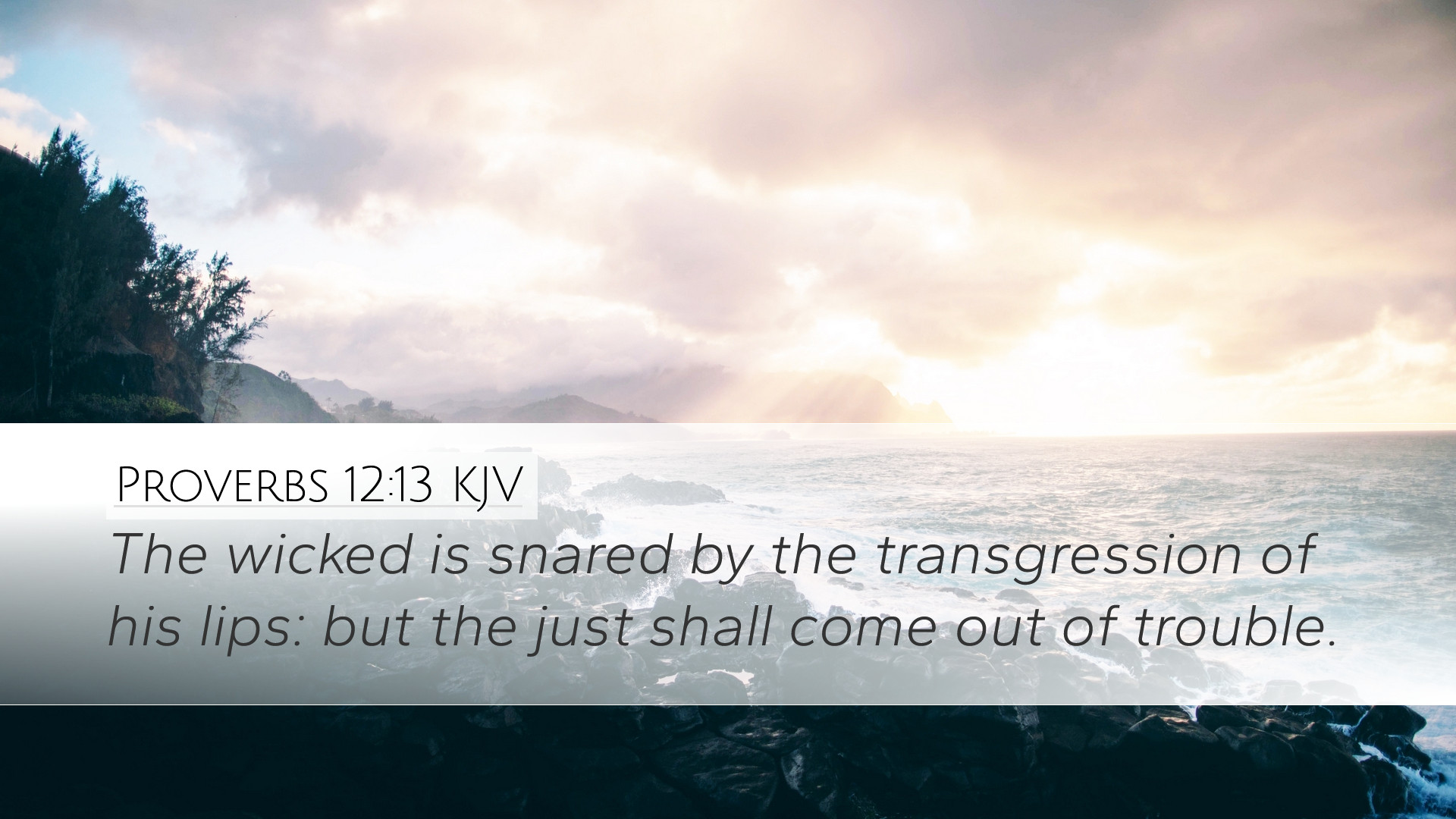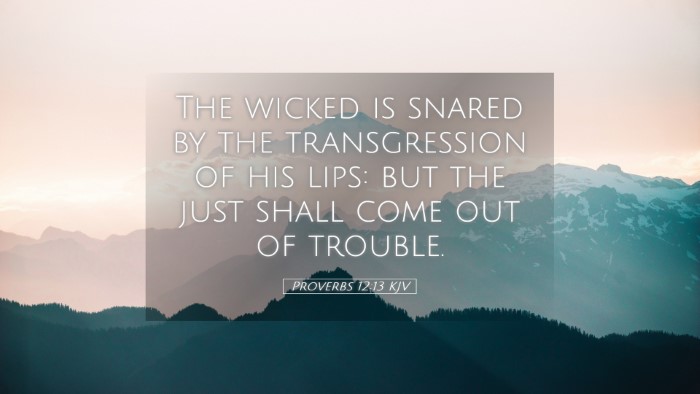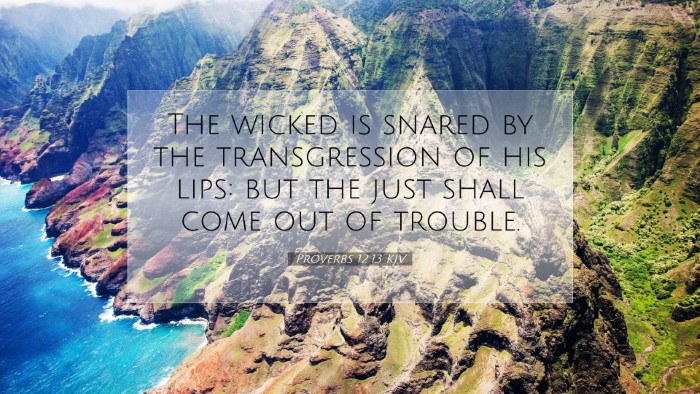Commentary on Proverbs 12:13
Verse: "The wicked is snared by the transgression of his lips: but the just shall come out of trouble."
Introduction
The verse from Proverbs 12:13 presents a stark contrast between the consequences of wickedness and the blessings associated with righteousness. In this commentary, we will examine insights from various public domain sources, providing a rich theological understanding that appeals to pastors, students, theologians, and scholars.
Overview of the Text
This verse encapsulates a profound moral truth about the nature of speech and its repercussions. The imagery of being "snared" suggests that the wicked fall into traps laid by their own words. In contrast, the just are portrayed as resilient, emerging from adversity.
Insights from Commentators
-
Matthew Henry's Commentary
Henry emphasizes the nature of speech as a critical element in moral conduct, observing that the "transgression of his lips" implies that the wicked are often ensnared by their own deceitfulness and lies. He points out that wickedness not only leads to moral corruption but also brings about practical consequences that entrap the speaker.
He elaborates that those who engage in dishonest or malicious speech will ultimately suffer the consequences of their actions. In contrast, the "just" are described as those who conform to God's will, suggesting that their integrity provides a means of deliverance from troubles.
-
Albert Barnes' Notes
Barnes notes that the wicked's "snare" signifies the entrapment that results from careless or malicious words. He draws attention to the duality in this verse, where "wicked" and "just" represent two paths of living. According to Barnes, the mouth is an instrument that can either lead to ruin or righteousness.
Barnes further suggests that the "just" are not merely passive in their moral standing; rather, they actively pursue righteousness and, as a result, experience a form of divine protection and rescue from troubles. This highlights the concept that righteous living leads to stability amid life’s challenges.
-
Adam Clarke's Commentary
Clarke provides additional nuance by framing the wicked's snares as part of a divine retribution system: those who violate moral and ethical principles through their speech will find their consequences directly tied to their actions. He underscores the idea that God's justice operates in the natural order of life, where sinful actions reap corresponding results.
On the andere hand, Clarke points to the assurance for the righteous. The phrase "shall come out of trouble" serves as a promise of deliverance through faithfulness to God's laws. This dual aspect of justice reinforces God's ultimate sovereignty over human affairs.
Theological Implications
This verse serves as a powerful reminder of the importance of speech in the life of both the wicked and the just. The consequences of one’s words extend beyond the immediate context; they delve into the realm of divine justice and moral integrity.
From a theological standpoint, this passage emphasizes the need for believers to guard their mouths, indicating that the tongue holds the power of life and death (Proverbs 18:21). The wicked’s downfall is not simply a consequence of external factors; it is self-inflicted through their own moral failures.
In contrast, the assurance given to the righteous provides a hope that transcends immediate circumstances, revealing that God honors those who maintain integrity even in times of difficulty. This reflects the broader Biblical theme where faithfulness leads to divine favor and protection.
Application for Believers
For pastors and theologians, Proverbs 12:13 encourages the emphasis on teaching congregants the significance of integrity in speech as a hallmark of Christian character. It offers an opportunity to explore the ethical implications of communication within the community, urging believers to cultivate honesty and truthfulness.
Students of the Bible are challenged to reflect on their personal speech and its alignment with God’s standards. It invites a deeper examination of how their words can either build up or destroy relationships and communities.
Moreover, in moments of adversity, believers can find reassurance in the promise that righteousness will lead them through challenges, fostering resilience and encouraging a reliance on God’s justice.
Conclusion
Proverbs 12:13 presents timeless truths about the moral weight of our words and the dual paths of life—wickedness leading to downfall and righteousness leading to deliverance. As seen through the insights of noted commentators, the interplay between speech and morality serves as a crucial element in understanding the believer’s journey. This verse urges all who engage with it to reflect on their speech's power, the consequences of sin, and the hope found in a righteous life.


